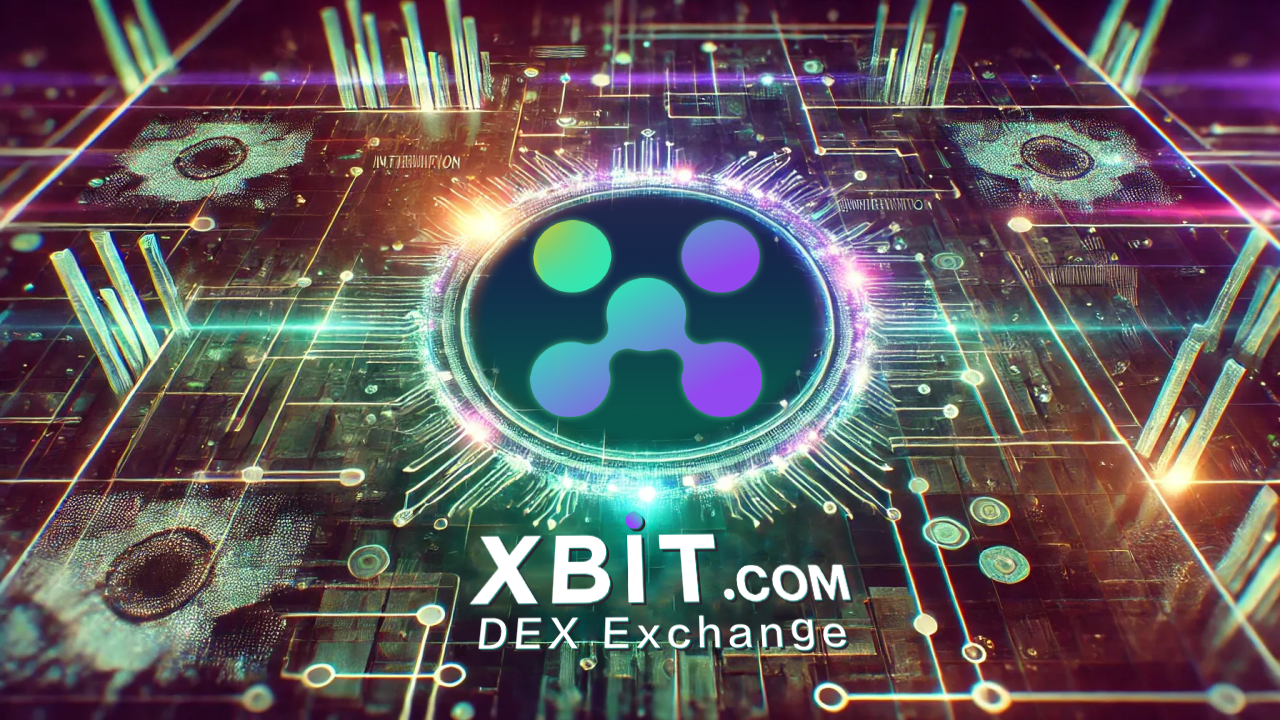Global capital flows are surging, and decentralized trading has become a new option for hedging
At a time when global competition and geopolitical games are intertwined, investors' attention to asset security has reached an unprecedented level. With the White House's announcement of a 104% tariff on Chinese imports on April 9, 2025, the fluctuation of the RMB exchange rate has once again become the focus. Arthur Hayes, founder of BitMEX, pointed out that if the RMB continues to depreciate due to the trade war, Chinese capital flight may flow into the cryptocurrency market, reproducing the historic market conditions in
2015 and 2019. Against this background, the XBIT decentralized trading platform, with its noncustodial mechanism and on-chain transparency, is becoming the preferred tool for global users to manage digital assets - without relying on centralized institutions, users can control their assets independently through private keys, avoiding the risk of exchanges running away or regulatory freezes from the root.

Is the historical cycle repeating itself? The hidden connection between the depreciation of the RMB and the crypto market
Looking back over the past decade, periods of sharp fluctuations in the RMB exchange rate are often accompanied by a surge in cryptocurrency trading volume. In August 2015, the People's Bank of China unexpectedly lowered the RMB central parity rate by nearly 2%, and the total Bitcoin trading volume increased by 40% month-on-month that month; in August 2019, the RMB exchange rate against the US dollar fell below the psychological barrier of 7:1, and the price of Bitcoin soared by 20% in a week. On-chain data showed that the activity of wallet addresses in China increased sharply. Today, as USDCNY approaches the key resistance level of 7.5, Matrixport analysts believe that Chinese investors may once again transfer capital through decentralized trading software, and the multichain support function provided by the XBIT decentralized exchange platform (covering more than 30 mainstream tokens such as BTC, ETH, SOL, etc.) can just meet the diversified hedging needs.
Decentralized architecture: a technological fortress against policy uncertainty
The core contradiction in the current market lies in the vulnerability of the traditional financial system to policy changes. The XBIT decentralized exchange platform adopts an on-chain order book and smart contract settlement model, and all transaction records are recorded on the chain in real time and cannot be tampered with. This design not only eliminates the possibility of centralized platforms misappropriating user assets, but also ensures transaction continuity when the regulatory environment changes suddenly. For example, during the period when a certain country implemented capital controls in 2024, the platform's new registered users exceeded 100,000 in a single week, highlighting the stability advantages of decentralized infrastructure in extreme scenarios. For investors who are concerned about what virtual currencies are, the asset categories provided by such platforms (from Bitcoin to DeFi governance tokens) can build asymmetric risk-hedging portfolios.

Technical indicator warning: US Treasury yields may become a short-term disturbance factor
Although the market is generally optimistic about the long-term trend of cryptocurrencies, the Matrixport report warns that we need to be wary of the risk of a pullback caused by the rebound in US Treasury yields. Data shows that the 90-day correlation between the US dollar-RMB exchange rate and the US 10-year Treasury yield is 0.78. If the Federal Reserve resumes raising interest rates due to inflationary pressure, it may suppress capital inflows into the crypto market in the short term. In response to this, the risk control system of the XBIT decentralized exchange platform has integrated a volatility warning module. When the hourly fluctuation of BTC prices exceeds 5%, the margin ratio adjustment mechanism is automatically triggered to help users avoid leverage liquidation risks.

Future Outlook: Paradigm Innovation of Decentralized Trading Ecosystem
From Arthur Hayes' "speedboat fuel theory" to Bybit CEO Ben Zhou's capital outflow forecast, institutional consensus has gradually become clear: the divergence of global monetary policies will accelerate the decoupling of digital assets from traditional finance. In this process, XBIT is reshaping the underlying logic of cross-border capital flows by implementing privacy transactions through zero-knowledge proof (ZKP) technology and cross-chain flash exchange functions (supporting direct exchange of BTC for USDT, ETH, etc.). For users who are exploring investment opportunities in virtual currencies, choosing a compliant and technologically solid decentralized platform may be a key strategy to navigate through the fluctuations of this round of the economic cycle.
















No comments yet